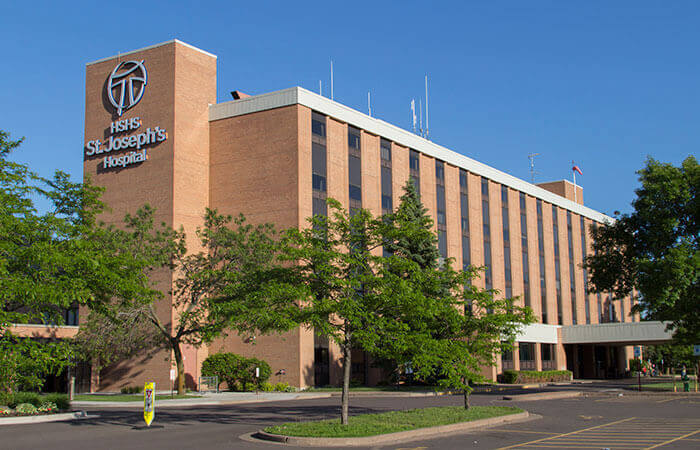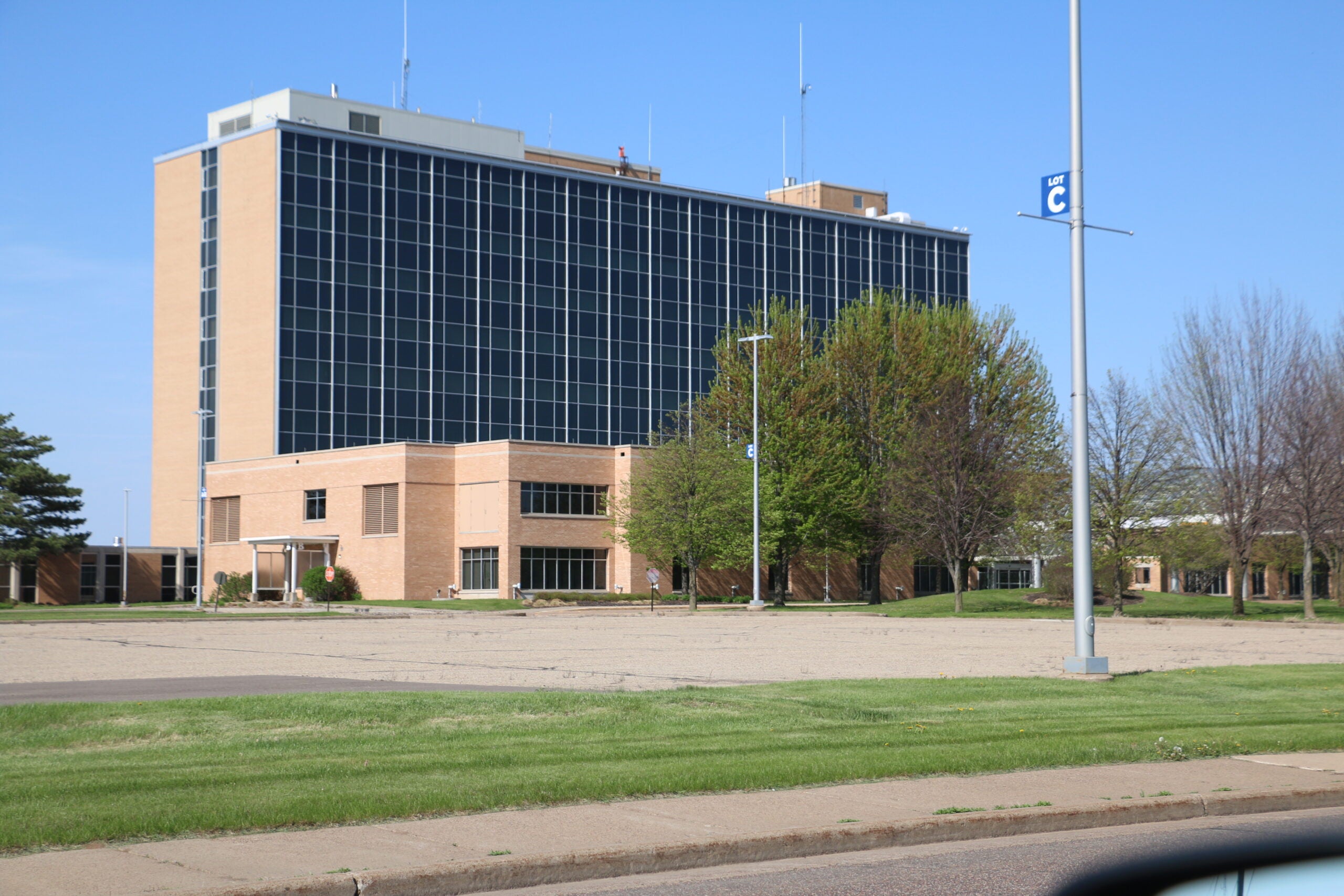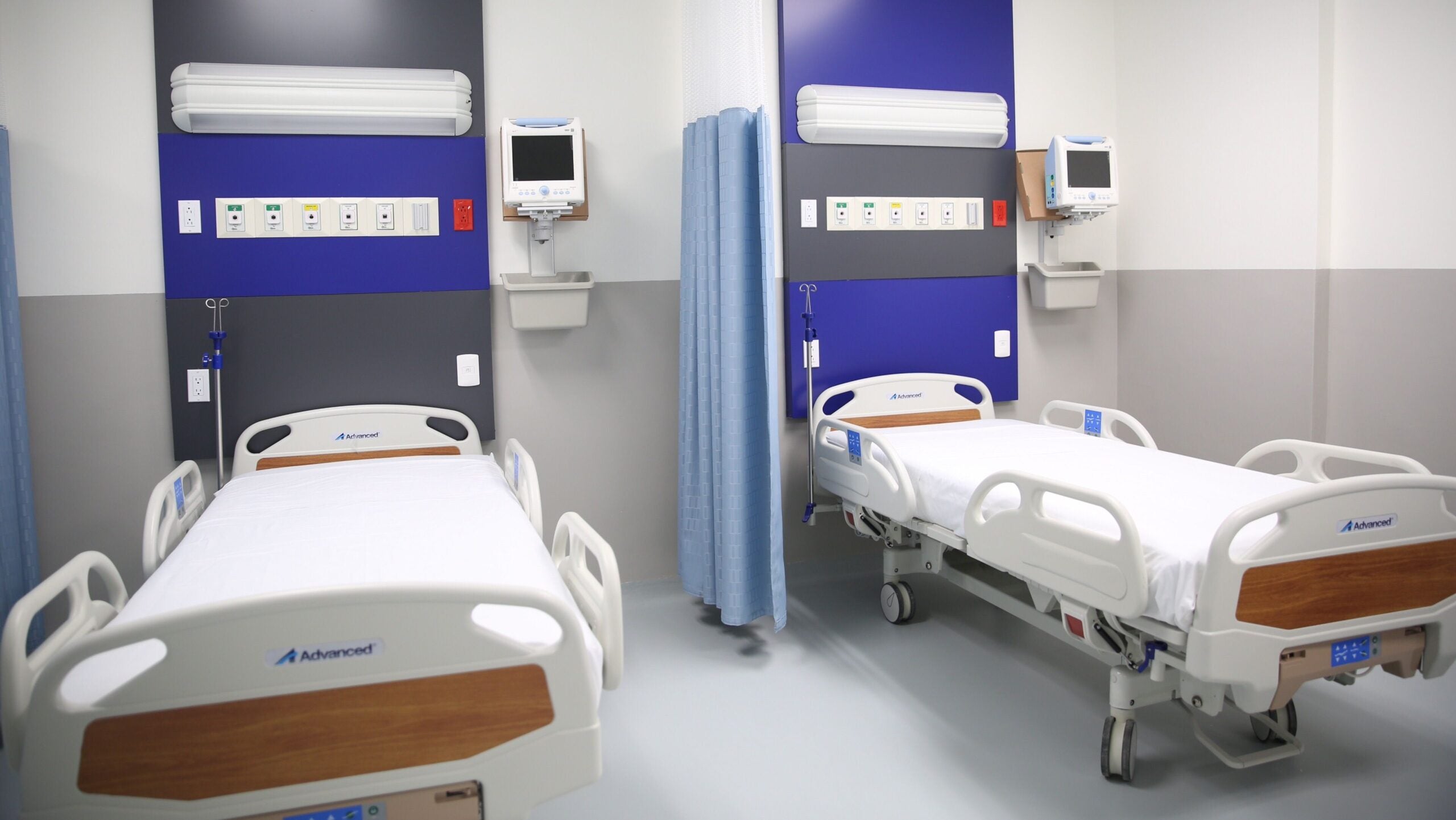A physician association in western Wisconsin hopes to purchase a network of hospitals and clinics set to close starting in March.
OakLeaf Medical Network, which currently operates 26 clinics across 15 counties, announced on Thursday that it hopes to start negotiations with Hospital Sisters Health System and Prevea Health to purchase their facilities in western Wisconsin.
The two health systems announced last week they would be closing HSHS Sacred Heart Hospital in Eau Claire, St. Joseph’s Hospital in Chippewa Falls and all of the associated clinics this spring.
News with a little more humanity
WPR’s “Wisconsin Today” newsletter keeps you connected to the state you love without feeling overwhelmed. No paywall. No agenda. No corporate filter.
Layoff notices submitted to the state Department of Workforce Development detail the 1,391 employees who will be laid off across 21 facilities in the region.
Eau Claire City Council president Emily Berge said her initial reaction to the announcement from OakLeaf was hope. She said the planned closures have taken the entire community by surprise, including the employees at the health systems. Berge said city and regional leaders have been scrambling to find ways to help.
“We’ve all been looking for short term solutions and long term solutions. I’m not sure if this is both short and long term, but I’m hopeful it will help in some regard,” Berge said.
In a press release, Dr. Kyle Dettbarn, chair of OakLeaf’s board of directors, said the health care services and hospital beds provided by HSHS hospitals can’t be absorbed by the other hospitals in the area.
“Closing these hospitals, emergency rooms, the cancer center, maternity wards, the wound care/hyperbaric clinic, psychiatric and dialysis units will have a dramatic impact on everyone in the western Wisconsin region,” Dettbarn said in the release. “Lives will undoubtedly be lost if we cannot all figure out a solution quickly.”
The press release estimates the two hospital closures will mean more than 900 pregnant people who are patients of an OakLeaf Medical Network doctor will need to find a different hospital for their delivery. The closures will also impact at least 50 dialysis patients, over 100 cancer patients and will mean the loss of more than 20 inpatient psychiatry beds, including the only unit serving adolescents.
A spokesperson for HSHS and Prevea did not return a WPR request for comment on the estimates provided by OakLeaf or the network’s interest in purchasing the facilities. In a press release announcing the closures last week, the hospital systems said all of the affected employees “will receive support services and career transition assistance, including the potential to seek positions elsewhere in the organizations, if available.”
Layoff notices show 400 nurses, 30 physicians among those losing jobs
Without the purchase, the two hospitals and the L.E. Phillips Libertas Center in Chippewa Falls, which provides inpatient and outpatient substance use recovery services, will cease operations on March 22 or within 14 days after, according to the layoff notices. Services at most Prevea Health clinics would end between April 13 and 26.
Almost 400 registered nurses and more than 30 physicians are among the workers detailed on the layoff notices. The majority of doctors affected by the layoffs are at Prevea Health clinic locations, as well as roughly 40 advanced practice providers. HSHS will lay off 30 physical therapists and 19 occupational therapists at their locations, as well as 15 pharmacists.
The health care industry has struggled with a shortage of workers for years. Corina Mommaerts, assistant professor of economics at the University of Wisconsin-Madison, said that may mean workers laid off in western Wisconsin will find work quickly at the region’s other health systems. But she said it will still mean less care being provided to the Chippewa Valley’s residents.
“You also have to think about where are these other health care jobs,” Mommaerts said. “Are they going to have to move to other parts of the state? It’s not easy for people to pick up their lives and move to where the demand is, so I’m sure they’re still going to be feeling it.”
She said the hospital and clinic closures could also impact other businesses in the area that support them, creating even more ripple effects in the local economy.
Berge said leaders in the region are coming together to try to find solutions and help people who may be affected by the closures. She said the best possible outcome would be that no jobs are lost and residents’ health care “would go on uninterrupted.”
“We already have gaps in our health care, like mental health and rural health,” Berge said. “If we can solve those problems or close that gap more with any solutions that come forward, I think that’s the best case scenario.”
Wisconsin Public Radio, © Copyright 2026, Board of Regents of the University of Wisconsin System and Wisconsin Educational Communications Board.





